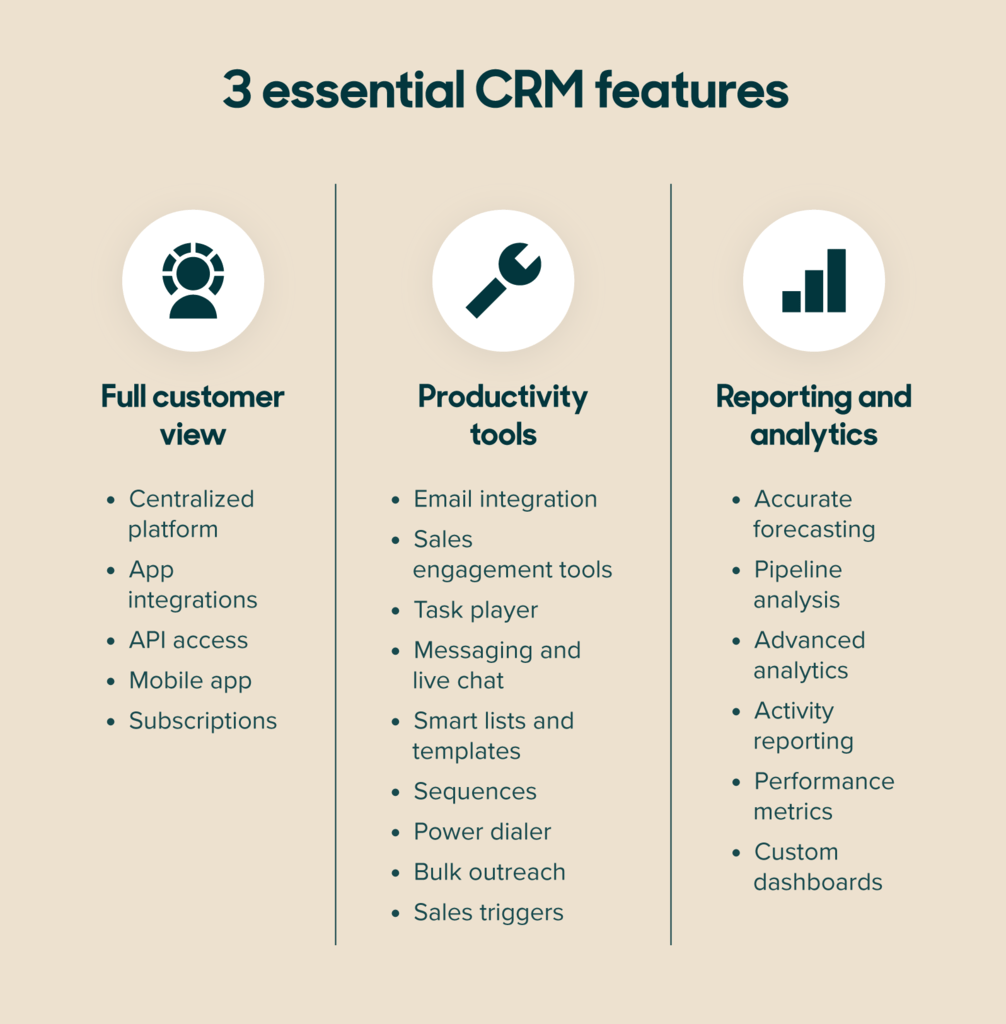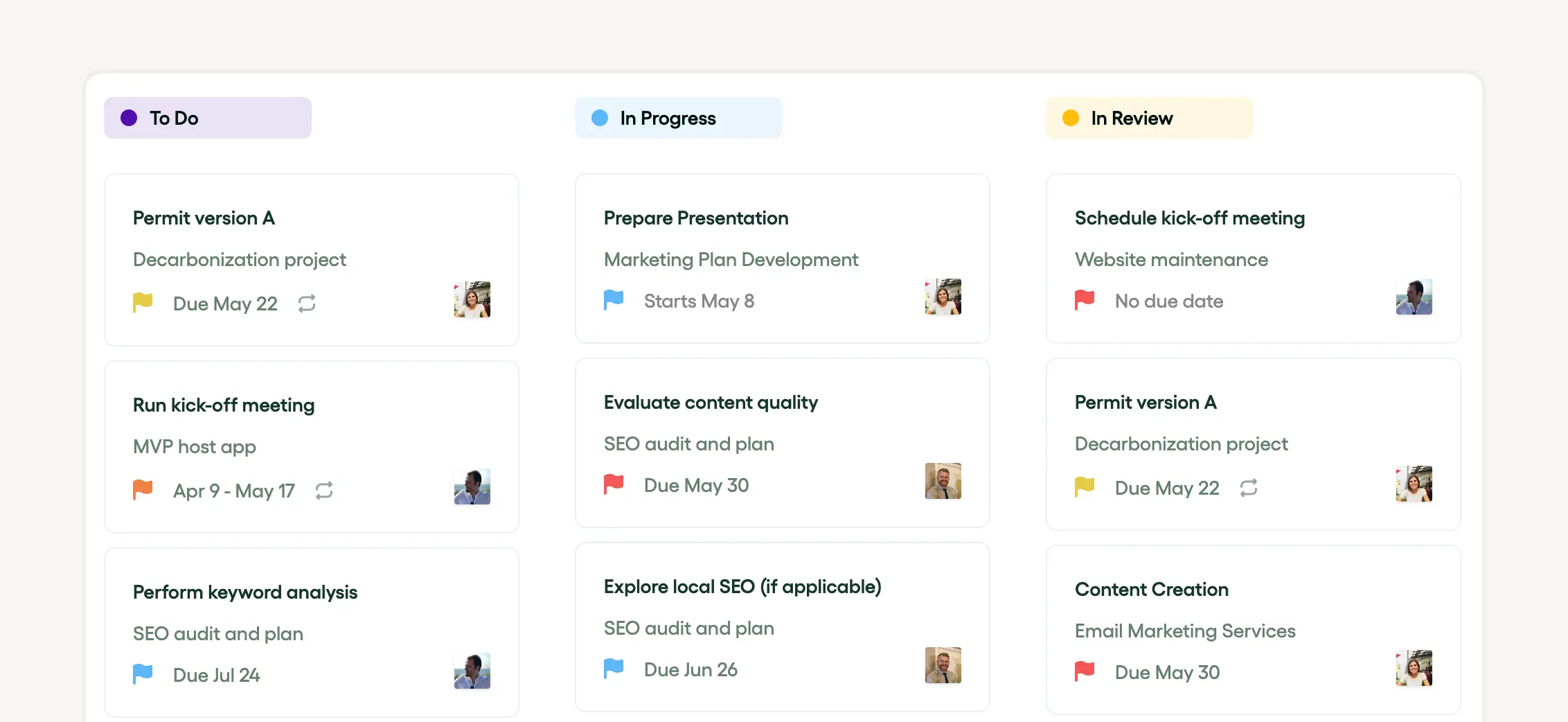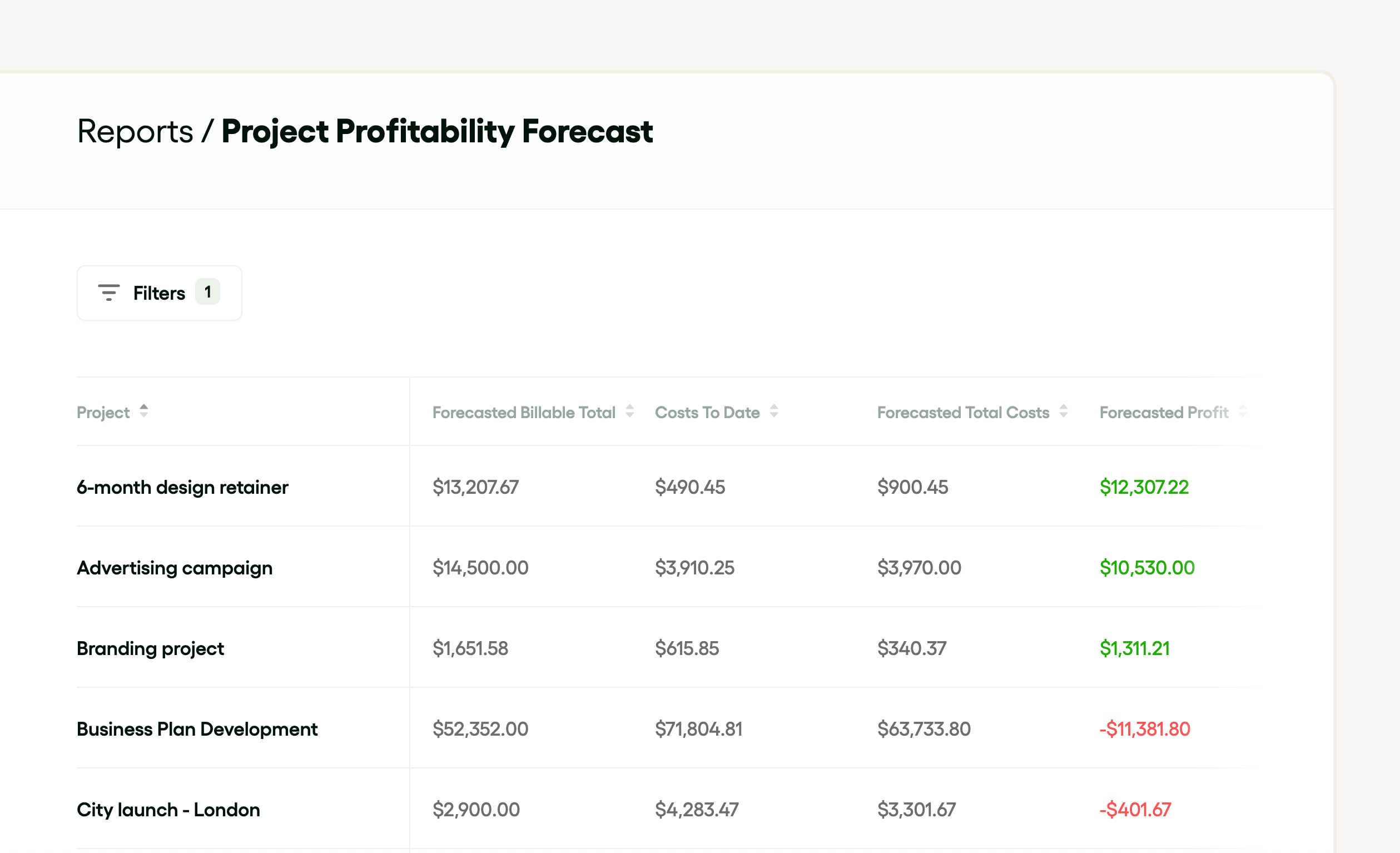Thinking of a smart CRM strategy? It's your secret sauce to rev up sales and business growth. Think of a CRM system like a well-oiled machine, making customer chats smoother and sales slicker. Automating stuff means you're saving time and serving customers better. With CRM software, you get golden insights into the customer journey, like a map to treasure.
Understanding CRM and its importance
CRM, or Customer Relationship Management, is a big cheese in today's biz world. It's the glue that sticks sales, marketing, and customer service together. With a CRM system, you’re playing detective, collecting and analyzing customer data throughout their journey. This helps businesses figure out what makes customers tick and how to keep them happy. Automation magic shortens the sales cycle and handles customer care like a pro, meaning happy customers stick around longer. That's the bread and butter of growing a business.
Defining CRM

CRM isn't just a fancy buzzword; it's a mindset that’s all about the customer. It covers all the bases, from marketing to sales and customer service. A CRM system acts like a crystal ball, giving a clear view of the customer's lifecycle. It’s like having a personal assistant who never forgets a detail, streamlining sales and marketing tasks while handling customer requests with ease. The result? Shorter sales cycles and happier customers who keep coming back for more. For any business looking to grow, CRM is the secret weapon to keeping customers in the loop and coming back for more.
The role of Bonsai CRM in business growth
The role of customer relationship management (CRM) in business growth Cannot Be Overstated. As a centralized platform, Bonsai CRM consolidates projects, clients, and team management into an integrated system, facilitating better organization and productivity. This Boosts efficiency in handling customer interactions and subsequently improves customer service. Here's how:
Client Management
Bonsai centralizes client information, proposals, contracts, and communication, fostering stronger relationships. Imagine never losing track of a lead or scrambling to find a crucial email. Bonsai keeps everything organized, allowing you to focus on building trust and exceeding client expectations.

Project Management
Manage projects with ease using Bonsai's built-in tools. Assign tasks, track time, and ensure deadlines are met – all within a single platform. This transparency keeps your team on the same page and projects running smoothly, leading to happier clients and repeat business.

Financial Management
Bonsai simplifies the financial side of things. Generate professional invoices with recurring payment options, track project profitability, and gain valuable insights into your business's financial health. This empowers you to make data-driven decisions that fuel growth.

Bonsai acts as a central hub, integrating with your favorite tools like email and calendars. This eliminates the need for juggling multiple platforms, saving you precious time and minimizing disruptions. A streamlined workflow allows you to dedicate more energy towards growing your business.
By fostering stronger client bonds, improving project delivery, and simplifying finances, Bonsai CRM equips small businesses with the tools they need to flourish.
CRM software also offers insights into the customer journey and Customer Lifecycle, which can be used to enhance customer-centric philosophy. By doing this, businesses Not only see improved sales cycle but also Customer retention, leading to sustainable growth.
Key elements of a successful CRM strategy
Nailin' a solid CRM strategy means keeping the customer front and center. Dive deep into CRM software to juggle customer data, sales cycles, chats, and service requests. This strategy automates sales and marketing, tailors customer care, and smooths out the customer journey.
Another biggie is managing the customer lifecycle, with a laser focus on keeping customers around. Using CRM systems smartly gives you the inside scoop on customer behavior, letting you serve up personalized care and boost loyalty.
Clear business objectives
Top of the list? Amping up customer service, marketing, and sales through savvy CRM software use. Guided by a customer-centric vibe, we’re out to streamline sales cycles, beef up customer data, and hike up retention rates.
To hit these goals, we'll dig into the customer journey and lifecycle, manage interactions, and automate sales with our CRM system. Plus, we'll handle customer care requests like a well-oiled machine to ensure stellar relationship management.
Customer segmentation
Breaking down your customer base into groups with similar traits? That’s customer segmentation. This tactic means you can offer top-notch service by looking at the customer lifecycle, journey, and interactions.
Using a CRM system helps you get a grip on customer data, automates sales, and nails effective relationship management. This not only keeps customers coming back but also sharpens marketing efforts and trims the sales cycle.
Personalized customer interactions
Customer interactions are the heartbeat of any marketing and sales strategy. Tap into customer data to track their lifecycle and bring a customer-centric spin to your services. CRM software automates sales cycles and handles customer care with precision.
A CRM system is key in managing the customer journey and locking in customer retention. Personalized relationship management improves interactions and overall business mojo.
Integration with other business systems
Hooking up your CRM with other business systems? Crucial for better customer service and a smoother journey. This customer-focused approach uses data to boost sales and marketing. It helps deliver tailored care requests, upping customer retention.
Integrated systems streamline sales cycles and automate tasks. The payoff? Slicker relationship management from first contact to retention. Using CRM software is a game-changer in today’s business scene.
Steps to building an effective CRM strategy
Effective CRM strategy starts with building a customer-centric philosophy and involves understanding your customer lifecycle and journey. This Helps In tailoring marketing efforts, improving sales, and enhancing Customer service. Key steps include:
- Implementing an efficient CRM system to manage customer data and automate sales.
- Tracking customer interactions and care requests to improve service.
- Focusing on customer retention through personalized engagements and quick resolution of issues.
Remember, the right CRM software is critical for managing the execution of these strategies.
Identifying business goals
Our primary business goals Center Around enhancing our sales cycle, improving customer service, and advancing customer relationship management. Through the implementation of Innovative CRM software, we aim to streamline customer interactions and automate sales processes. This customer-centric philosophy Include Understanding the customer lifecycle and Customer Journey, consequently improving customer retention.
By leveraging customer data, We also aim to refine our marketing strategies and response to customer care requests. With these targets in place, we expect to bolster our customer-centric philosophy and ultimately drive business growth.
Understanding your customers
Understanding your customers is pivotal in providing effective customer service and fostering a customer-centric philosophy. This understanding mainly stems from analyzing customer data gathered through various customer interactions, the customer journey, and Through The customer lifecycle. CRM software is instrumental here as it allows you to record These Diverse Interactions with your customers To get a comprehensive outlook.
CRM System, besides managing customer relationship management, can also Automate sales, thereby speeding up the sales cycle. Importantly, It can help in handling Customer care requests ensuring swift resolution to maintain customer retention. Effective marketing also plays a cardinal role, as understanding customer behavior and preferences can tailor Your Promotional strategies for better reach.
Selecting the right CRM software
Choosing the right CRM software requires An Understanding Of Your business needs and a customer-centric philosophy. The software should efficiently manage customer data, automate sales, and track the Complete Customer journey. This Allows you to improve customer service and ensure customer retention.

Consider these key features when evaluating CRM System:
- User-friendly interface for customer interactions.
- Integration with marketing tools.
- Customer care requests handling capacity.
- Analytical tool for tracking sales cycle and customer lifecycle.
Implementing the CRM strategy
Implementing a CRM strategy involves a customer-centric philosophy to understand the customer journey Better. this plan integrates marketing, sales, and customer service, which all rely heavily on customer data. Key points to consider are customer lifecycle and customer interactions.
Through a CRM system, businesses can automate sales, track the sales cycle, and manage customer care requests effectively. The usage of CRM software aids in customer retention by offering in-depth insights and enabling proactive responses to customers' demands and needs.
Training and support
Our CRM software offers training and comprehensive support for users to enhance their customer service, manage marketing strategies, and streamline the sales cycle. The following features Are emphasized:
- Support in understanding customer data thoroughly for effectual customer relationship management.
- Guidance in mapping the customer journey, aiding in customer retention.
- Help With setting Up automated responses for customer care requests, ensuring a customer-centric philosophy Is Maintained.
Our specialists also provide training on How To effectively record and manage Customer interactions within the CRM system.
Measuring success
Measuring success in a customer-centric organization largely depends on customer data. CRM software systems Aid in gathering and analyzing This data across the customer lifecycle, providing valuable insight into the customer journey. Key performance indicators Could Include customer retention rates and Customer interactions with both Marketing and customer service teams.
Furthermore, a CRM system carries the potential to automate sales methods and manage customer care requests, shortening the sales cycle. With a comprehensive view of customer relationship management, businesses can gauge their success based on customer reactions and satisfaction levels towards their products and services.
Choosing the right CRM software for your business
In developing your CRM strategy, it is vital to integrate methods of project management to ensure the effective and efficient use of CRM resources.

Picking the right CRM software is like finding the perfect tool for managing the customer’s journey. It helps you deliver top-notch customer service, automate sales, and keep track of interactions. All these are key to building a customer-centric approach. CRM systems can also handle care requests, speed up the sales cycle, and boost marketing with customer data. This leads to a well-managed lifecycle and better retention.
Features to look for in a CRM software
A solid CRM software should back your customer-focused approach. It needs to manage customer data, their journey, and lifecycle efficiently.
Look for features like:
- Automating sales processes to boost productivity.
- Tools for tracking interactions and handling care requests to improve service.
- Features to fine-tune marketing and drive retention.
An effective CRM system aligns your biz operations with customer expectations.
Examples of popular CRM software: Bonsai, Salesforce, Hubspot, and Zoho
Bonsai, Salesforce, Hubspot, and Zoho are top CRM software known for their customer-centric focus.
- Bonsai is powerful project management software. By streamlining project management tasks, resource planning, tracking project budgets, and monitoring timelines, Bonsai ensures that the project closeout process is conducted in a timely and orderly fashion.
.webp)
- Salesforce is a powerhouse, handling service, sales, and marketing. It manages interactions, automates sales, and analyzes data to optimize the cycle and boost retention.
- Hubspot shines in defining the customer journey and offering insights into the lifecycle. It processes care requests effectively, upping satisfaction.
- Zoho takes a holistic approach, integrating all customer-related operations, including sales and marketing. It tracks interactions and offers data-driven tips to build lasting relationships.
Best practices for CRM strategy implementation
Starting with a CRM strategy means understanding the customer journey and lifecycle. A customer-centric approach helps spot where CRM software can enhance interactions and automate the sales cycle. Focus on retention and prioritize excellent service. Key steps include:
- Centralizing data in one CRM system for a complete view.
- Tying marketing strategies to CRM for personalized interactions.
- Using CRM analytics to continually tweak the strategy.
Ensuring data quality
Data quality is crucial in sales, marketing, and service. A CRM system tracks and manages all interactions throughout the lifecycle. High-quality data is essential for understanding the journey, improving management, and boosting retention. Steps to ensure data quality:
- Automate sales and care requests to cut human error.
- Use CRM software for better sales cycle monitoring.
- Set guidelines for data entry and updates.
Regularly reviewing and updating the CRM strategy
Keeping your CRM strategy fresh is key to staying customer-centric. Regularly check your service delivery, measure sales cycle success, and evaluate marketing with CRM analytics. This keeps data accurate and relevant. Focus on interactions, retention, and the journey when updating the strategy. Respond to care requests quickly and use CRM features to automate sales, streamlining the lifecycle and boosting performance.
Encouraging user adoption
Getting everyone on board with your CRM system is crucial. CRM software is vital in today’s customer-centric world, managing data, sales, and marketing. It covers the entire lifecycle, from mapping the journey to enhancing service and ensuring retention. CRM systems automate sales and care requests, shortening the cycle and smoothing interactions. Highlight these benefits to boost user adoption and make the most of the system.
Common challenges in CRM strategy and how to overcome them
Tackling CRM strategy head-on? Watch out for these hurdles: managing heaps of data, keeping service top-notch, and aligning sales and marketing with a customer-first mindset. Smoothly managing the lifecycle and journey can get tricky with growing interactions.
Beat these challenges by leveraging CRM software to streamline processes. Automated systems handle data, sales cycles, and service effortlessly, offering insights to sharpen marketing strategies and elevate relationship management.
Resistance to change
New tech and strategies can hit a wall of resistance. Employees might balk at unfamiliar CRM software or changes to the sales cycle and customer-centric approach. Adjusting to new ways of handling data, automating sales, and managing care requests can be tough for those used to the old-school methods.
Handle resistance with care to ensure a smooth shift to new practices.
Data privacy concerns
Data privacy is non-negotiable in CRM and customer service. Proper data handling is critical throughout the journey, key for any customer-first approach. Mishandling data can wreck trust and tarnish your brand.
Dealing with sensitive info like financial details and purchase histories means airtight security is a must. Ensure data privacy with strong encryption and solid policies, especially with automated sales and marketing.
Integration issues
Smooth integration between sales, marketing, and customer service is essential for CRM success. Merging data from different sources can be tricky, though. CRM software helps sync things up, but format and quality disparities can throw a wrench in the works.
Such issues can disrupt the lifecycle and harm retention. A well-integrated CRM system streamlines care requests, automates sales, and boosts interactions. A customer-centric mindset is key to a seamless journey.
Conclusion: the impact of a well-implemented CRM strategy on business growth
A killer CRM strategy can skyrocket business growth. It makes better use of customer data, enhances service, and personalized marketing. A robust CRM system automates sales, slashing cycle times. It offers a clear view of the customer journey, fostering a customer-first approach that boosts retention through improved interactions and care.







